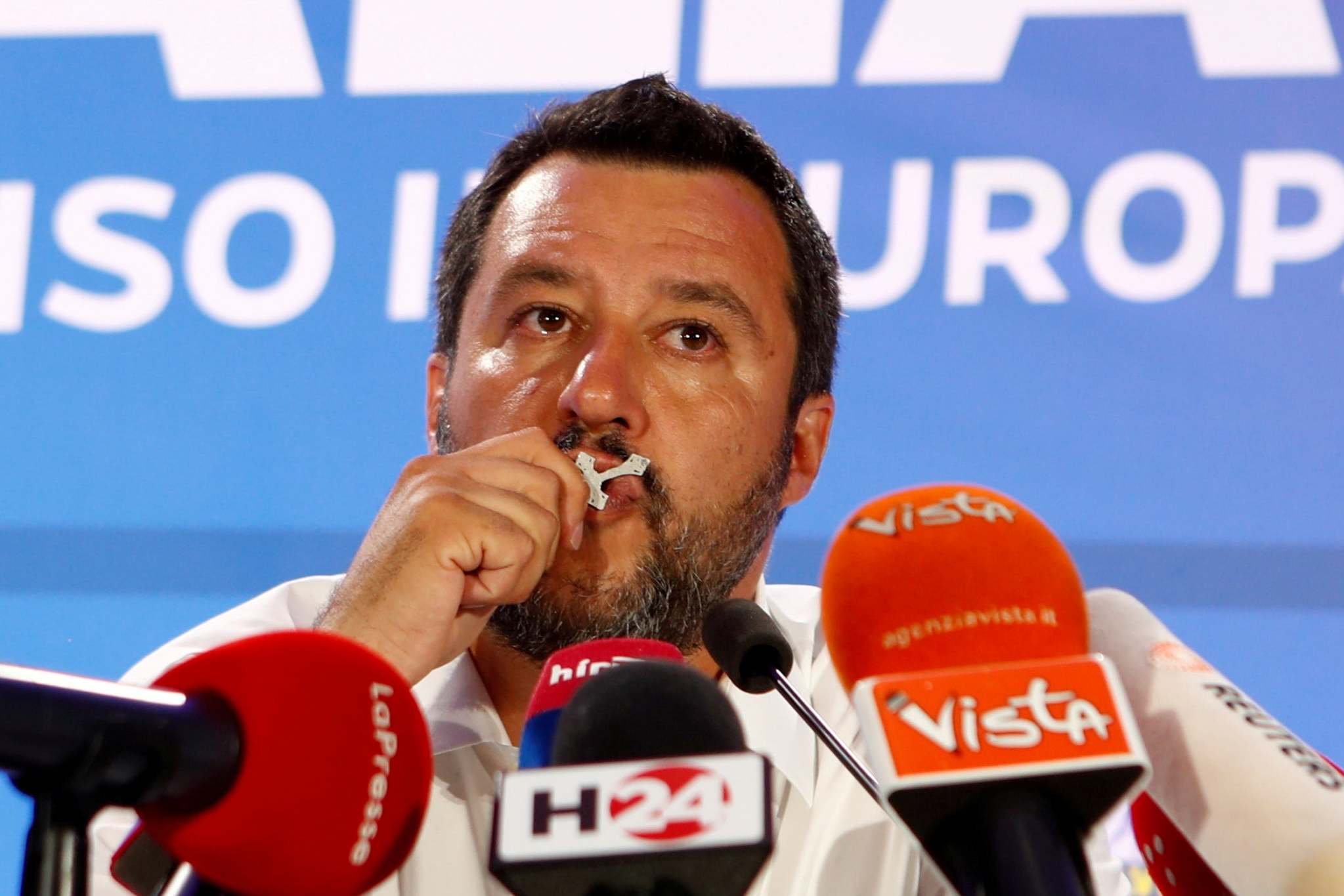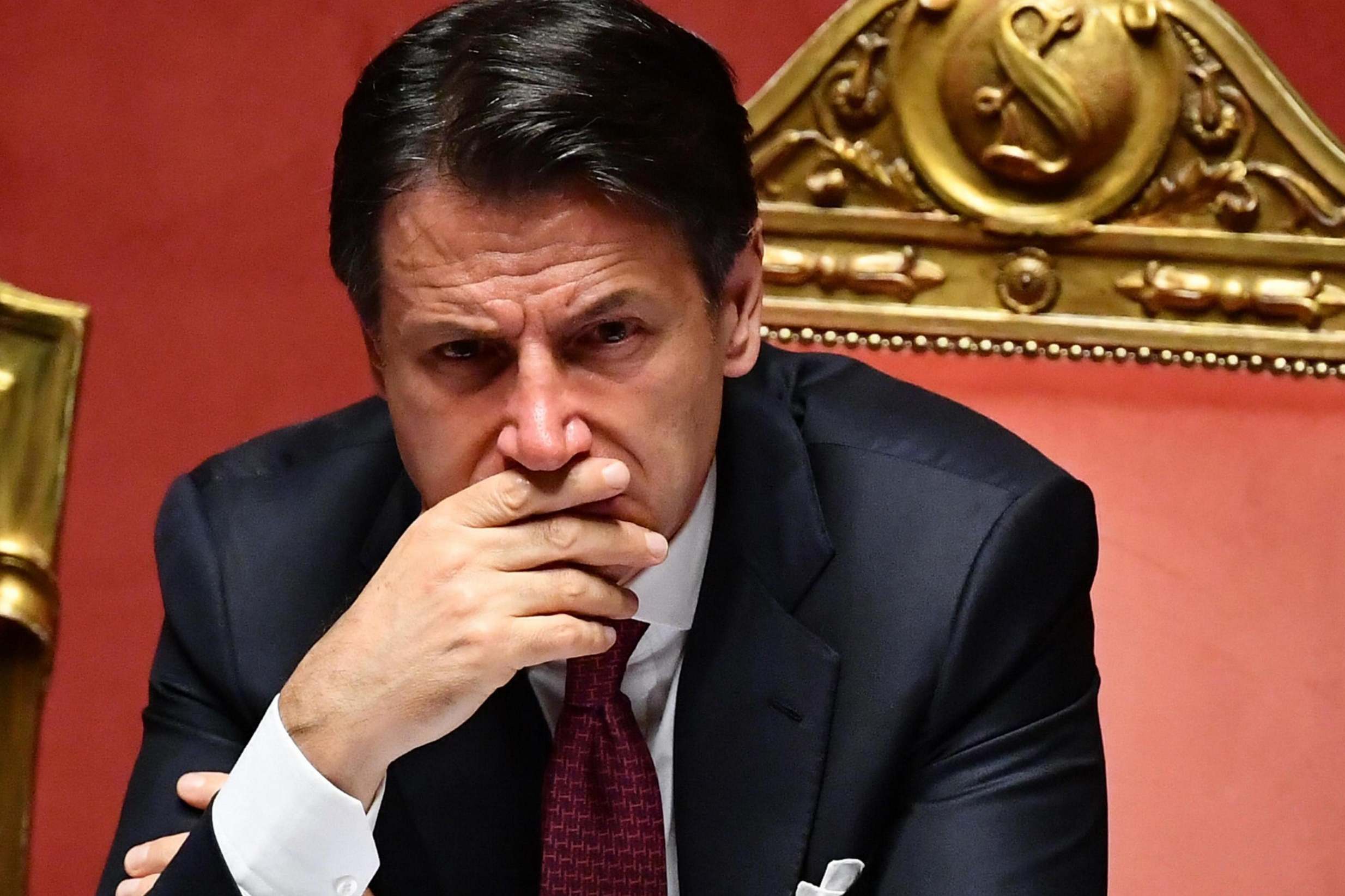Does the collapse of Italy’s coalition spell political suicide for Salvini?
Coalition between the League and Five Star parties lasted just 14 months

Your support helps us to tell the story
From reproductive rights to climate change to Big Tech, The Independent is on the ground when the story is developing. Whether it's investigating the financials of Elon Musk's pro-Trump PAC or producing our latest documentary, 'The A Word', which shines a light on the American women fighting for reproductive rights, we know how important it is to parse out the facts from the messaging.
At such a critical moment in US history, we need reporters on the ground. Your donation allows us to keep sending journalists to speak to both sides of the story.
The Independent is trusted by Americans across the entire political spectrum. And unlike many other quality news outlets, we choose not to lock Americans out of our reporting and analysis with paywalls. We believe quality journalism should be available to everyone, paid for by those who can afford it.
Your support makes all the difference.After a heady summer in Italian politics, the right-wing coalition government has finally come crashing down.
What remains to be seen is whether the country’s fiery interior minister Matteo Salvini will manage to cement his leadership and steer Italy even further to the right, or whether an unlikely coalition of the centre-left and populists can stop his rise.
On Tuesday the Italian prime minister, Giuseppe Conte, resigned, bringing to an end 14 months of the League and Five Star coalition government under his guidance.
With League leader and deputy prime minister Salvini beside him, Conte’s canto del cigno, or swansong, was punctuated with criticisms of Salvini for being irresponsible, disloyal, opportunistic and authoritarian, following his recent decision to bring down the government – when in early August he called for new elections and declared the coalition over.
The response of many centre-left politicians listening to his words was: “How have you only just noticed?”
Observers have argued that Conte’s political prowess was not a discernible feature of his governance, he was – up until his final day – a somewhat mediocre and technocratic balancing figure, even if politically he was closer to Five Star.
While Salvini had won almost all the battles of the coalition government despite being the smaller partner – his repressive “security” laws and the approval of the TAV high-speed rail, opposition to which was a major plank of Five Star’s electoral programme – his economic plans floundered in the face of strong opposition.
Polling at around 40 per cent, and following an annihilation of his coalition partners and opponents in the European elections, Salvini knew that forcing elections could allow him to form a government with the support of the right-wing Brothers of Italy and, if necessary, Berlusconi’s Forza Italia, allowing him to pass the “flat tax” which Five Star would deny him.
But by not withdrawing from government immediately following those European elections in late May, Salvini gave his opponents two crucial months to prepare themselves for this moment.
One of Salvini’s closest political allies in government and deputy leader of the League, Giancarlo Giorgetti, blamed Salvini alone for this delay, agreeing that it would have been “easier to force elections if the crisis of the government had occurred sooner”.
The president, Sergio Mattarella, is now meeting with party leaders to negotiate the formation of a new government, as stipulated by the constitution – but not the immediate election that Salvini had been demanding in his summer tour of Italy, a string of beachfront election style-rallies.
Despite its recent dizzying poll ratings, the League’s electoral result in March 2018 was 17 per cent, leaving them the third biggest party in the legislature with fewer MPs than Five Star and PD.
And Salvini’s high-risk strategy may well end up putting him into opposition for up to three and a half years, with La Repubblica journalist and author Matteo Pucciarelli describing his move as “political suicide”.

The unravelling of his plan during the last two weeks has demonstrated that Salvini’s actual political power is considerably weaker than the figure he has promoted in government, on social media, and in personal branding exercises on the beaches and in the town squares of Italy.
While Salvini has miscalculated somewhat his power grab, another Matteo may have spotted an opportunity.
Matteo Renzi, the former mayor of Florence who became prime minister in 2014 in a Machiavellian usurpation, only to be brought down in 2016 by his own hubris when he bet his premiership on the outcome of a constitutional referendum.
Since Renzi was party leader of the PD during the 2018 general election, the majority of the party’s parliamentarians are Renzi loyalists, leaving the current party leader Nicola Zingaretti – despite having the party’s mandate to negotiate with Five Star – slightly impotent.
After much speculation, Renzi confirmed his readiness to form a coalition with the Five Star Movement, who want to avoid an election at all costs, having been decimated in the polls since they entered government. This survival instinct may push them into a coalition with the very party against which their populism was built.
Ex-prime minister, former president of the European Commission and veteran figure of the centre-left Romano Prodi has welcomed this proposition, noting that Five Star – unlike the League – voted for Ursula von der Leyen as president of the European Commission. Prodi has called for PD and Five Star to form a stable coalition not only for Italy but for its European allies, in order to “rehabilitate Italy as an active member of the European Union”.
Despite the fact Zingaretti favours a long-term coalition, it is more likely to manifest itself as a short-term alliance to try and restore fiscal credibility with the European Commission and avoid an automatic VAT rise, which would be imposed if no plan for lowering the deficit is presented by the end of September – something which both new elections, and a League-led government, would lead to. If no accord can be decided, elections will most likely take place in October, with Salvini’s League destined to come top.
The future prospects for both Salvini’s League and any opposing governing coalition also rely on forces outside of their control. While Salvini appears to have played his cards too soon, he may end up profiting from the situation anyway.
As Lorenzo Zamponi, assistant professor in Political and Social Sciences and editor of Jacobin Italia said: “This will be determined by the new European Commission: if they continue to enforce strict budgetary regulation, they will pave the way for Salvini's future triumph.
“If they want to avoid it, they will have to allow the new government the space for public investment and social spending they have not allowed any Italian government since 2011.”
If a longer-term Five Star-PD coalition takes office, one that plans to legislate rather than a single-purpose government aimed at preventing the punitive VAT-rise, questions arise over the extent to which it will oppose the authoritarian measures the League-Five Star government introduced.
The second part of Salvini’s security decree, with provisions to penalise migrant rescue NGOs and boats with fines and limiting the rights to strike and protest, became law this month.
Along with the first security bill which removed recourse to public funds for migrants by cancelling an entire classification of asylum seekers, it would be a clear target for PD whose leader Zingaretti was elected on a platform of opposing Salvini’s authoritarian tendencies.
This opposition may only be skin deep however, if the real power lies with Renzi – his one-time ally Marco Minniti was Salvini’s predecessor as interior minister and was the architect of the disastrous Libya deal criticised extensively by Amnesty and the UN.
While the League continue to push Italy rightwards, whether or not the country will become polarised once more along a right-left axis remains to be seen.
Join our commenting forum
Join thought-provoking conversations, follow other Independent readers and see their replies
Comments